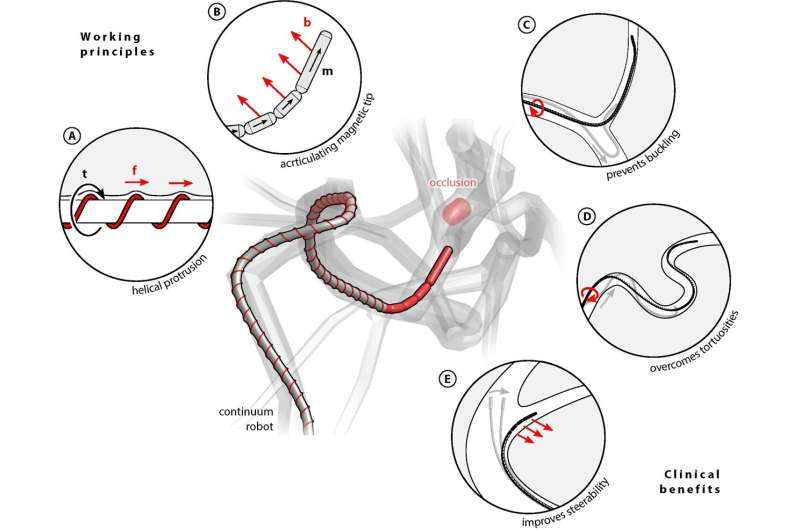In ischemic strokes, an obstruction (typically a blood clot or plaque) becomes lodged in tiny vessels in the brain. The result is a blockage, which prevents blood from flowing to the brain, killing brain cells. Such strokes can cause brain damage and sometimes death. Treating them is extremely time-sensitive—the longer it takes to remove the blockage, the more brain damage occurs.
Current treatments involve drugs that can break up the mass causing the blockage or use of a guide wire inserted into a femoral artery and pushed until its tip reaches the blockage. Both therapies take time, which means brain cells die waiting for blood to reach them. In this new effort, the research team developed a new approach that allows for a much more rapid response.

